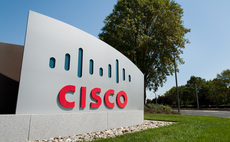With one industry figure opining that Cisco partners are the networking giant's ‘puppets', Jack Gilbert asks whether the biggest vendors still control the channel
In any industry, the biggest companies will always hold a certain level of influence over the market. But in the IT channel, with its layers of partners all spun together in a web, the influence th...
To continue reading this article...
Join CRN
- Enjoy full access to channelweb.co.uk - the UK’s top news source for the IT channel
- Gain the latest insights through market analysis and interviews with channel leaders
- Stay on top of key trends with the Insider weekly newsletter curated by CRN’s editor
- Be the first to hear about our industry leading events and awards programmes
Already a CRN member?










